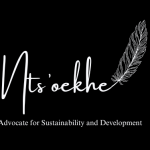
This week, Namibia made international headlines as President Netumbo Nandi-Ndaitwah announced that, starting in 2026, all tertiary education at state-run universities and vocational training centres will be fully subsidised by the government. This historic policy is not just a win for Namibian students, it is a challenge to neighbouring countries like Lesotho to reflect on the sustainability, equity, and vision of their own higher education systems.
Lesotho’s Current Model
In Lesotho, the National Manpower Development Secretariat (NMDS) serves as the primary financier for tertiary education. However, the system is under immense strain. A 2015 World Bank report revealed that only about 4% of NMDS loans are recovered annually, effectively rendering the scheme a de facto grant system. This low repayment rate undermines the sustainability of the fund, limiting opportunities for new students and placing additional pressure on the national budget.
The Vicious Cycle of Debt and Unemployment
The repayment challenges are exacerbated by high youth unemployment. According to Finance Minister Dr. Retsélisitsoe Matlanyane in her budget speech, findings from the 2024 Labour Force Survey reveal that out of 760,230 young Basotho aged 15 to 35, approximately 145,087 are unemployed. Nearly 39% of youth actively searching for jobs struggle to find employment. The overall youth unemployment rate stands at 38.9%, with young women facing greater difficulties at 40.8%, compared to 37.1% for young men. Additionally, only 31.48% of young people are either employed or actively seeking work. A significant number have lost hope, with over 226,857 no longer searching for employment. This economic reality makes it difficult for graduates to repay their NMDS loans, further straining the fund and limiting access for future students.
Quality Education: Bridging the Gap
While Lesotho has made strides in increasing access to education, quality remains a significant concern. The introduction of free primary education in 2010 led to higher enrollment rates. However, disparities between public and private schools persist, with private institutions often offering superior resources and outcomes. Does free always mean quality? If it were, I believe the same people who introduced free education would be taking their kids to the very ‘free’ schools.
Recently, the Ministry of Education has initiated efforts to integrate artificial intelligence (AI) into the curriculum. However, the success of such initiatives hinges on the preparedness of educators. Are the present teachers relevant? How often do they upgrade their studies? I believe it is high time it becomes mandatory for teachers to upgrade while temporarily being substituted by those with necessary skills.
Building the Foundation for Economic Sustainability
Investing in early childhood education (ECE) is crucial for Lesotho’s long-term economic development and human capital formation. On a lighter note, recognising this, Lesotho has partnered with organisations like UNICEF and the Global Partnership for Education to enhance ECE through initiatives such as the “Better Early Learning and Development at Scale” (BELDS) program.
Early Retirement As Pathway to Youth Employment
Another strategy to combat youth unemployment can be the implementation of early retirement policies. By encouraging older employees to retire earlier, opportunities can be created for younger individuals entering the workforce. This also making right by the education system, with teachers having relevant, necessary skills.
The Government of Lesotho’s Public Service Reform report suggests that reducing the retirement age to 50 could be a component of a holistic youth employment policy, although political will in implementation becomes a challenge.
Namibia’s bold step should serve as a wake-up call for Lesotho. Ensuring equitable access to higher education is not just a matter of social justice-it is an economic imperative. By rethinking its higher education financing model, investing in teacher training, and implementing policies to boost youth employment, Lesotho can build a more sustainable and inclusive future.